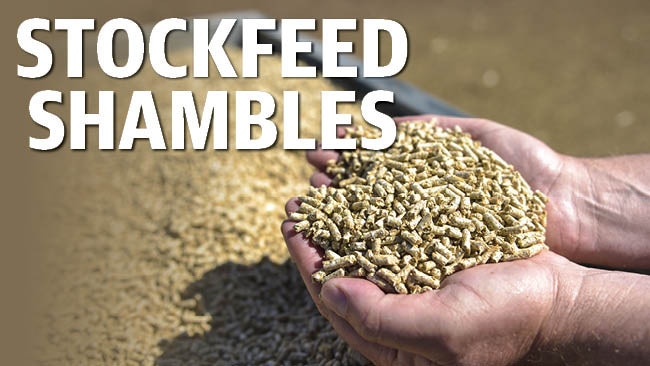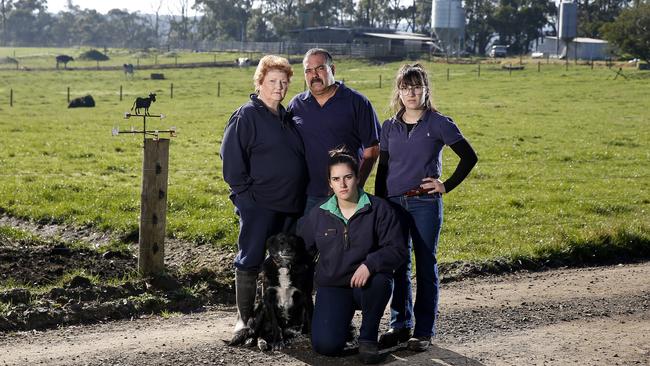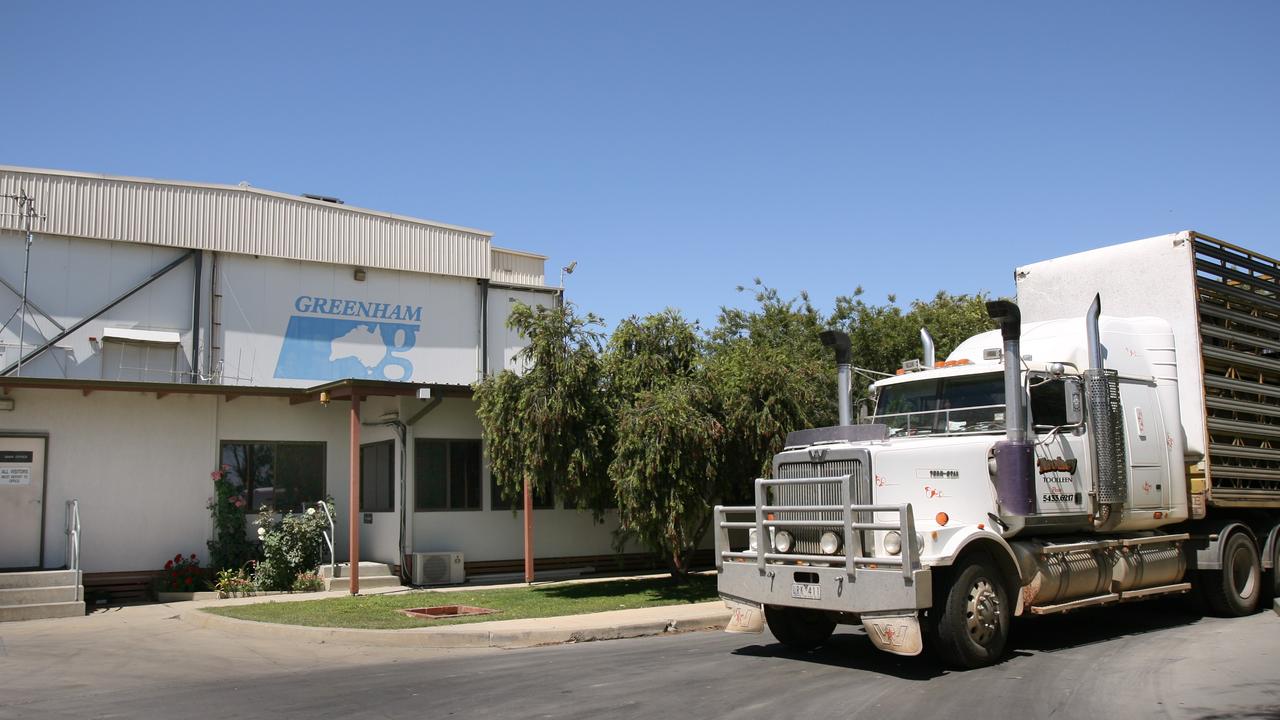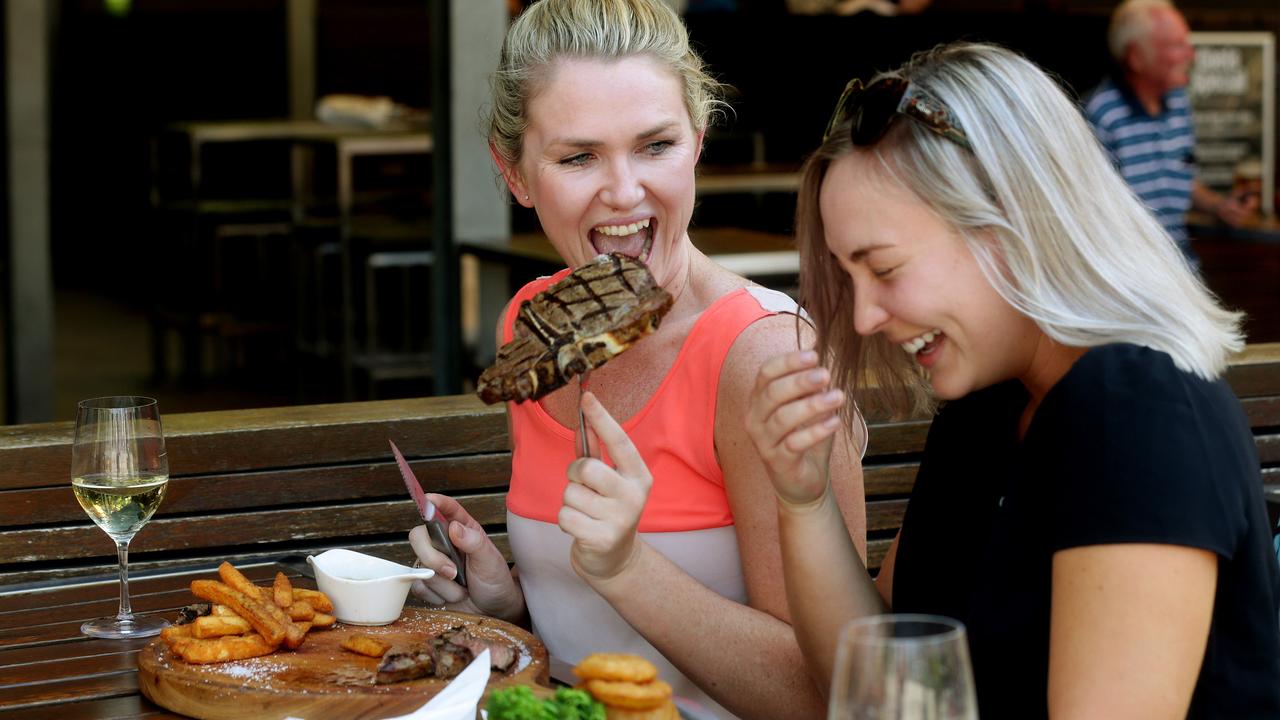Lack of regulation over stockfeed quality poses big risk to Victorian farmers
Farmers are being hung out to dry when it comes to issues over stockfeed quality, with confusion among government authorities exposing a concerning regulatory gap.

VICTORIA’S stockfeed industry is flying under the radar, with no state or federal government authority regulating feed quality, despite the industry being one of the most integral parts of the supply chain.
The Weekly Times can reveal confusion among departments about responsibilities has created a regulatory gap, meaning the regulation of stockfeed quality has been left in the hands of the industry itself.
Even Australia’s consumer watchdog has no power to investigate stockfeed issues, with the sale of stockfeed not covered by Australian Consumer Law – meaning farmers’ only option is to take civil action if quality issues arise.
The revelation comes as The Weekly Times revealed last week Gippsland dairy farmers Vic and Debbie Guastella were forced to launch legal action against Australia’s largest stockfeed manufacturer, Ridley Corporation, over claims of toxic feed pellets which killed 20 of their cows.
The Weekly Times can reveal confusion among departments include:
AGRICULTURE Victoria said it does not regulate the quality of livestock feed and that the Australian Pesticides and Veterinary Medicine Authority was the responsible body for regulation;
THE APVMA said animal feed materials and ingredients generally do not require registration and therefore do not fall under its watch. It said SafeMeat could answer questions around stockfeed regulation;
SAFEMEAT said it does not have any regulatory role and in Australia, the states and territories are responsible for the regulation of feed;
AGRICULTURE Victoria said the Australian Competition and Consumer Commission can investigate feed quality issues;
THE ACCC said it only investigates issues relating to human consumer product safety and not animal welfare.
The regulation of stockfeed quality in Victoria has been left in the hands of the industry’s national peak body, the Stockfeed Manufacturers’ Council of Australia, which operates an industry-funded accreditation program – FeedSafe.
Stockfeed manufacturers can operate with or without FeedSafe accreditation, which involves being audited by a third party annually.
SFMCA executive officer Duncan Rowland would not say, when questioned by The Weekly Times, how many stockfeed manufacturers, if any, had lost their accreditation since FeedSafe was established in 2003.
The Victorian Government’s approach to stockfeed regulation is a stark contrast to its regulation of the meat industry which is governed by PrimeSafe, a state government body.
PrimeSafe is responsible for administering and revoking the licence of meat processing facilities and regularly inspects sites to ensure they operate under the law.
Victorian Farmers Federation president David Jochinke said farmers shouldn’t have to “bear the financial and mental scars” when something goes wrong in the stockfeed industry, and that the VFF would write to the Victorian Government to ask them “to step up and implement a more compliant (regulatory) system that sets out responsibilities and actions”.
“It’s absolutely ridiculous if farmers have to take an entity to court because they haven’t been delivered a safe product,” he said.
“These are farmers, we’re not lawyers and we shouldn’t have to be. The system should be there to protect us.
“They’re in the business of farming, they don’t necessarily have the capacity or time to go to court for once again quite simply a product that has been delivered and found faulty.”

HAVE YOU HAD AN ISSUE WITH STOCKFEED? Email shannon.twomey@news.com.au or chantelle.francis@news.com.au
Victorian Agriculture Minister Jaclyn Symes would not comment on the regulation of the industry, including whether she would request a review of the system.
Ms Symes’ department, however, told The Weekly Times farmers could take up feed quality issues – such as excessive minerals in feed, which can cause toxicity and death – with the ACCC.
But an ACCC spokesman refuted Agriculture Victoria’s claim saying “the sale of stockfeed is not covered by the Australian Consumer Law”.
“The Australian Consumer Law regulates the sale of consumer goods, which includes provisions dealing with consumer product safety and consumer guarantees,” the ACCC spokesman said.
“Individuals who have suffered loss or damage as a result of non-safe (stockfeed) products have private legal rights.”
EDITORIAL: WHY WE MUST TIGHTEN REINS ON STOCKFEED
The APVMA has “monitoring and enforcement” powers over registered chemical and veterinary products, but animal feed materials and ingredients generally do not require registration if they are fed as part of the normal diet of an animal, are intended solely for nutritional purpose, do not contain medications or other active constituents and do not make any health, production or performance claim.
The APVMA said it had no record of any products registered to Australia’s largest stockfeed company, Ridley Corporation.
While Agriculture Victoria does not regulate stockfeed quality, a department spokeswoman said it does audit and investigate stockfeed manufacturers to ensure they are adhering to the Ruminant Feed Ban, which is an Australia-wide inclusive ban to ensure that restricted animal material is not being fed to ruminant livestock species, including cattle, sheep, goats or deer.
The department also undertakes investigations when unacceptable residues are detected in livestock products following testing conducted by the National Residue Survey.
According to the federal agriculture department, the stockfeed industry submits about 200 grain samples each year as part of the survey and in the past five years 19 of these samples have breached acceptable levels for maximum residues.
After The Weekly Times revealed the dispute with the Guastellas last week, Ridley said it was unable to comment specifically on the claim but acknowledged it was a difficult time for the family saying “the situation is a complex one, and we hope it can be resolved at the formal mediation scheduled to take place in the coming month.”
MORE


